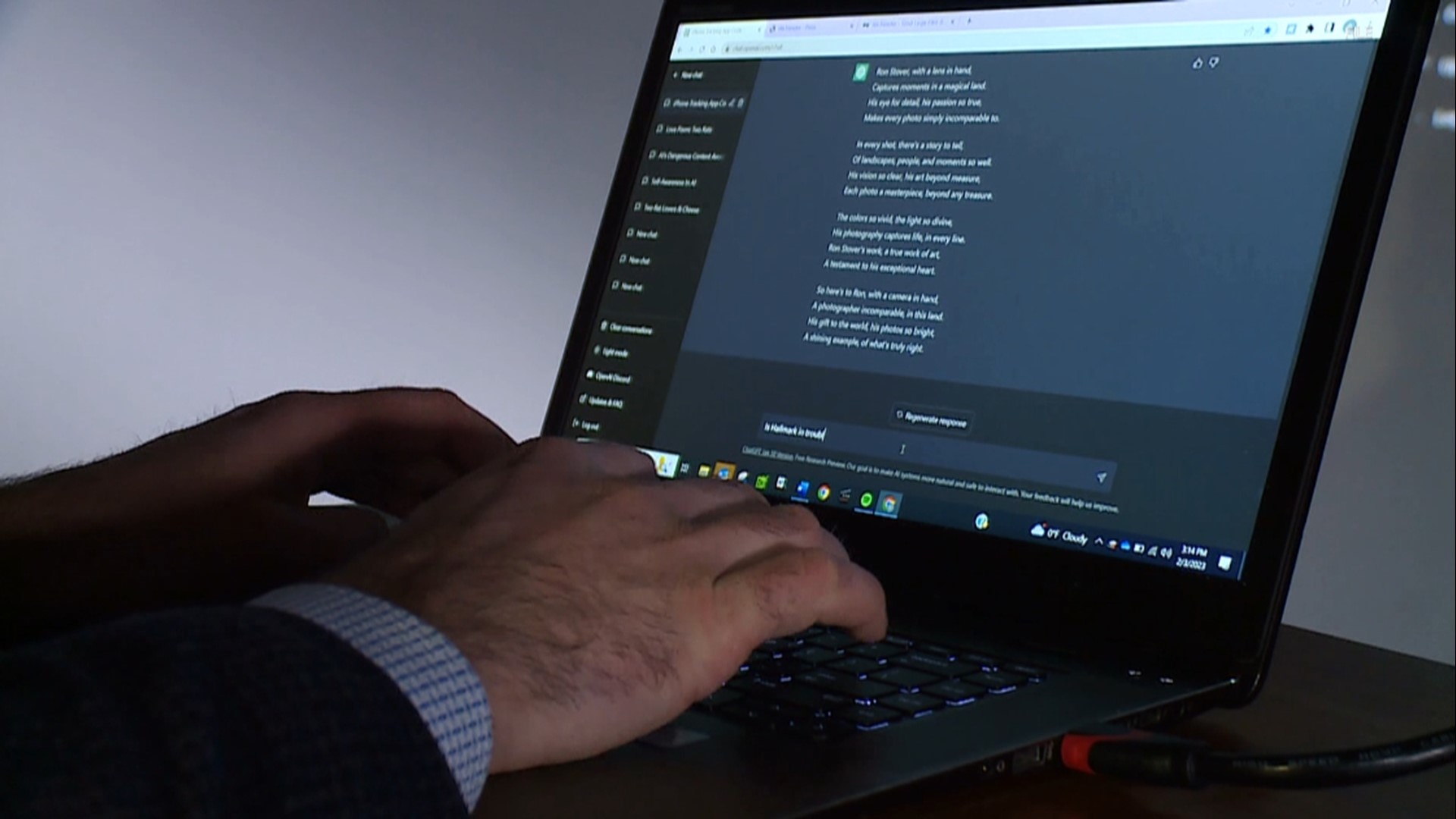MINNEAPOLIS — Concordia College professor Darin Ulness was working on his own research late last year when he came across some YouTube videos on ChatGPT. Ulness, who teaches physics, chemistry, and neuroscience, thought he could use it for some computer coding.
"Then I tried it out and realized it would be very versatile for any sort of discipline," he said.
Ulness then quickly organized a learning session to educate others at the college about the software, at the semester's start.
"I thought it would be mostly students who signed up, but it was a lot of faculty," Ulness said. "As we started to see what it could do, it was both panic and opportunity."
Ulness definitely saw an opportunity for its use as a learning tool. But there still was panic among some educators because – despite the development of some AI detection software – there's no surefire way to know whether or not something has been composed by it.
For Manjeet Rege, who serves as the chair of the Department of Software Engineering and Data Science at St. Thomas University, it's an exciting time. He routinely discusses the development of artificial intelligence and machine learning models in his classes. But for other instructors who aren't as familiar with the area, Rege knows it can be overwhelming.
"Because this happened at the end of the previous academic semester, and we are in the middle of a new semester, I am pretty sure many of my colleagues in education did not have time to revise their in-class exercises or assignments," Rege said.
Rege believes professors will spend the summer immersing themselves in the software and adjusting their lesson plans accordingly. He said the Center for Faculty Development at St. Thomas is working on developing webinars to further educate instructors. Meanwhile, he's encouraging his colleagues to not avoid ChatGPT, but to lean into it.
"So it may not be a competition between a human educator and an AI, it’s more about supplementing one with the other and making that educational journey a lot more rewarding for everyone," he said. "You [could] cover a particular concept in the class, but then the students take that same concept and see what ChatGPT has to say about it."
Ulness also has ideas on how educators can use it to their advantage.
"You can scaffold assignments where you have [students] write a little bit, then [they] get feedback… and ChatGPT is not going to be as good at taking in all of the feedback that you’re getting from your professor," Ulness said. "So you can change some of the ways you do the assignment."
Ulness said Concordia College is currently working on developing a statement on the "ethical use" of ChatGPT.

